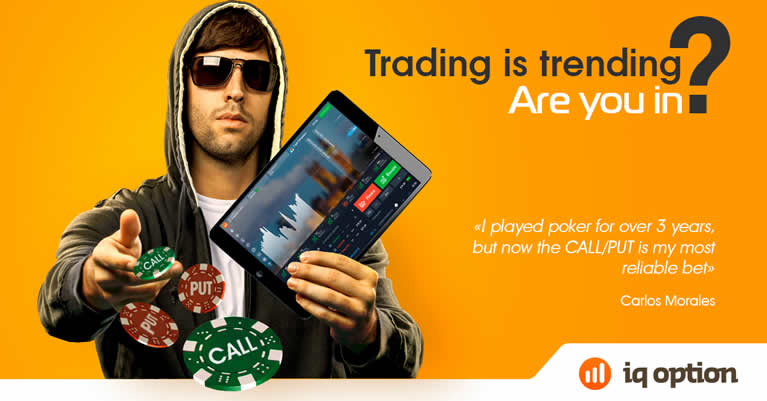“…if you know the Way broadly you will see it in everything”
-Miyamoto Musashi-
Trading is considered an occupation that places a premium on education and rationality. Knowledge is key, as is self-control. Basically gamblers need not apply. Nevertheless it is increasingly difficult to reconcile the sheer volume of trades placed daily on the world’s markets with the aura of rationality that the profession likes to cultivate. Clearly something doesn’t add up because annual turnover rates on the world’s stock exchanges far outweigh what most people in the know would regard as rational trading. In fact most commentators are willing to concede, albeit reluctantly, that the vast majority of trades transacted on a daily basis are at best overconfident and at worst downright irrational.
Let’s take a minute here to define our terms. Rational investors are individuals who only trade when the expected gains exceed the costs of a transaction. This includes all fees and even the cost of investment information. For a trade to be given the green light it must be expected to increase the trader’s utility after taking all costs into account. In contrast, overconfident investors lower their returns by trading far too often; they make unrealistic forecasts regarding possible returns and wildly overestimate their abilities to predict them. They will also tend to overspend on investment information and place far too much emphasis on this data.
Clearly something is not right here. The actual picture we receive when we look at the world’s markets is a frenzy of overconfidence and hyperactivity, rather than restraint and rationality. Studies have shown that the securities purchased by individual investors consistently underperform the securities they sell. The picture is even bleaker when you take into account liquidity demands, tax-loss selling, rebalancing, and changes in risk aversion. These studies don’t even take into account the ever-multiplying capital that is traded online every day by even less-seasoned traders.
As far as I’m concerned whether the markets are rational or not is neither here nor there. The only thing a trader can control is the degree to which he or she is making rational choices. When traders, especially those with some degree of proficiency, finally come face to face with the fact that the problem may actually be their own psychology, it can come as quite a shock. I remember giving seminars designed to demonstrate precisely this to people who regarded themselves as experienced traders. It never gets any easier to break the news, but this initial disempowerment is vital if a trader is to grow.
Recently I came across a study that provided a perfect example of how psychological differences can produce statistically significant results in trading. The study compared respective portfolio performance between the sexes, and the results were very intriguing. The authors begin the study by showing that irrespective of actual ability men tend to be more overconfident than women, especially in traditionally masculine domains. Men were shown to trade more often than women, and to lower their overall returns as a result. They were also shown to actually underperform women, but not because of inferior security selections or inappropriate timing. Men underperformed because they were simply more prone to act, thus unnecessarily increasing risk exposure and incurring higher transaction costs on average than women. In addition to this men were also shown to invest in riskier positions than women.
The reason I bring this study up has nothing to do with challenging perceived gender roles or attempting to appear politically correct. The study is interesting as it provides a solid example of a testable difference in mindset, something sample group members had absolutely no control over, that could so tangibly affect their trading returns. Indeed age and marital status have also been shown in other studies to be highly correlated to risk appetite, with younger single traders being far more comfortable to hold more volatile positions than older married traders. Now imagine the myriad other less testable psychological factors that may also impact your trades on a day to day basis.
As a trader you should be ever-vigilant for all the seemingly uncontrollable aspects of your psychology that can affect your trading. Trading psychology is certainly no new thing but so many people still overlook it in favour of what they perceive to be more solid areas of research. The problem with this is that you can be a wizard at technical analysis, or some kind of idiot savant when it comes to reading the underlying sentiment of a particular market, but if your mindset impinges on your ability to translate this knowledge into rational trades, then your advantage over a gambler who just locks-in random trades for the sake of it will be negligible. Your psychology is the epicentre of your world, and markets are driven by the aggregated psychologies of all buyers and sellers, so as a trader you really do overlook it at your peril.
One of the reasons psychology comes so emphatically into play is closely related to the overconfidence problem. Difficult tasks have been repeatedly demonstrated to inspire a higher degree of over-confidence in people. This may seem counter-intuitive but it is no less true. And what could be harder than an arena requiring you to make timely choices amidst a truly dizzying overabundance of data, difficulty of synthesis, low predictability and particularly noisy feedback. This, in a nut shell, is the environment you trade in. This is the market. Overcomplexity and ambiguous feedback are also particularly good at inspiring self-serving attribution bias in people and if there were ever one psychological trait that consistently prevents traders from seeing the wood for the trees it is definitely this one. In trading attribution bias is when a trader erroneously attributes successful trades to their own market savviness and blames losses on other extraneous variables. It is a psychological mechanism that all human beings unconsciously employ in order to protect or bolster their self-esteem, and a fantastic example of a perfectly natural, quintessentially human trait that causes many an educated trader to take overconfident and irrational positions while being none the wiser as to their cause
There are many great books on trading psychology and more coming to the shelves each year. Personally I’d advise looking into the evolutionary approach to trading psychology as it is these deeply ingrained mechanisms that tend to wreak the most havoc on an individual’s trading game. I’d also advise traders to make the most of their brokers. That is what they are there for! Another interesting fact the aforementioned study revealed was that men were also far more likely to go against the advice of their brokers, which is another textbook example of overconfidence.
The simplicity and openness of binary options trading provides you with significant advantages over other online traders. The time and attention others need to keep track of spreads, leverage, deposit margins, stop-loss strategies, hidden transaction fees and interest rate differentials, is time you have the absolute freedom to employ developing yourself into a complete trader. Remember that binary trading platforms only simplify trading on the user’s end, the markets themselves remain the same perplexing superorganism; the highpoint of all human complexity. Immerse yourselves in them, but also take the time to cast your gaze inwards and make the necessary changes to your mindset. It seems strange concluding an article to traders in such a self-improvement vein, but then again it’s logical that such a challenging activity should necessarily touch on all facets of your humanity. Now go back to the beginning and read the opening quote again.













